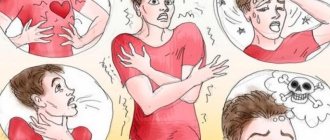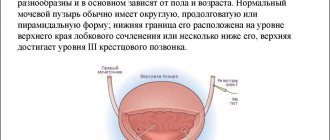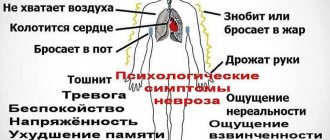The non-stop rhythm of the modern metropolis, constant fatigue, dissatisfaction with the professional sphere, personal life and its course in general often leads to such phenomena as neurosis or depression. Usually such things are not talked about, so the person carries the problem within himself until it is too late. Is it possible to recognize borderline states and how to help yourself with depression and neurosis? Find out the necessary answers on the blog.
What is neurosis
Neurosis is a rather broad concept that cannot be described in a few words. The lack of an exact definition of neurosis forces one to turn to various sources, practices, psychological, psychiatric and other practices that can give completely opposite terminology and characteristics of this condition. Thus, the once highly specialized term has been popularized, and does not reach the level of treatment in a psychiatric hospital, but does not fit into the usual framework of mental norms. What is it and how to recognize neurosis?
Neurosis is understood as neurosis - a psychogenic functional disorder of higher nervous activity. That is, any event, phenomenon, phrase, sight or other sensation perceived by the senses affected the psyche and traumatized it so much that the person could not remember/forget it, comprehend, compensate and continue to function normally. Such psychotraumas are reversible.
The most common neuroses are in combination with psychosomatic diseases, panic attacks, post-traumatic stress disorders, obsessions and obsessive disorders, as well as other borderline conditions.
Treatment of neuroses and depression in adults and children
Treatment of neuroses and depression is associated with the restoration of a person’s mental state, after the body’s reaction to an increasingly tense situation. Now, even the protective mechanisms developed over millennia cannot always protect a person from a nervous breakdown. Before moving on to cover the issue related to methods of treating obsessive neurosis, we consider it necessary to dwell in a few words on the causes of the disease and its symptoms. Currently, there are quite a large number of clinics involved in the treatment of neuroses. Doctors, before proceeding directly to treatment of a disease, always find out the causes of its occurrence. The course of treatment for anxiety neurosis and other forms of the disease directly depends on this. There are a considerable number of causes of the disease, on which the treatment of neurosis depends. It could be:
• constant physical or mental overload; • indecision or emotional distress; • bad habits or injury, etc.
The main causes, symptoms and treatment of neuroses
In order to promptly determine the onset of the disease and promptly seek help from doctors, it is necessary to know the symptoms of the disease. Let's highlight several main features:
• rapid fatigue and causeless emotional stress; • isolation and headaches; • insomnia and dizziness; • blurred vision and weakening of memory; • lack of appetite and hand tremors; • frequent urination and overeating.
If a person becomes irritable over any little thing, has low self-esteem, and is unpredictable in behavior, then he should immediately consult a doctor and undergo a course of treatment for neurosis.
Several main types of neurosis and their treatment
• Obsessive-compulsive neurosis, the treatment of which is aimed at eliminating involuntary fear, doubts, frightening memories, worries, etc. • Hysterical neurosis. As a rule, this type of disease occurs in people with increased emotionality, egoists, and people with increased suggestibility. • Neurasthenia. This type is the most common. The second name is fatigue syndrome. It occurs in humans as a result of nervous exhaustion.
There are a huge number of other types of neurosis, and these are informational and traumatic, social and school, neurosis of obsessive movements, the treatment of which is carried out in each specific case individually.
Diagnosis of the disease and methods of treating neurosis
Treatment of neurosis, before starting a course of treatment of neurosis in children, as well as treatment of neurosis in adults, the doctor must diagnose the disease. At the same time, during the examination, the causes of occurrence are necessarily studied, the patient’s complaints are analyzed, etc. For this purpose, various questionnaires and techniques can be used. Treatment of neurosis, as mentioned above, directly depends on its form, the age of the patient, the severity of the disease, gender, etc. For example, the treatment of childhood neurosis will be somewhat different from the treatment of a disease in an adult. For some patients, there is no need to take any drugs to be cured. It will be enough to change the environment, go on vacation, remove the irritant. How to treat neurosis? The main method of treating neuroses in Moscow, as in other localities, is psychotherapy. However, in order to strengthen the nervous system, quite often doctors prescribe sanitary-spa treatment or the use of physiotherapeutic methods. When treating neurosis with medication, as a rule, the doctor prescribes a course of treatment in the form of taking general strengthening drugs for the body. These can be vitamins of groups “A”, “B”, “C” or sedatives, i.e. calming, normalizing sleep. In cases where the disease is the result of overwork, medications that improve blood supply to the brain are prescribed.
Treatment of neuroses and depression with the latest methods
Sometimes, treatment of neuroses involves the patient taking antidepressants or tranquilizers. The former can be used for any form of neurosis, but only on the recommendation of a doctor. This is due to the fact that they are highly targeted drugs and are not compatible with other drugs, as well as some food products. In modern realities, the treatment of neuroses and depression is causing increasing concern not only among doctors, but also among ordinary citizens. According to WHO, depression is currently considered the most common disease worldwide. More than 350 million people worldwide suffer from this disease. In this regard, the demand for clinics for the treatment of depression is increasing. Depression is more than just mood swings. It has its own symptoms that will help determine the occurrence of the disease. Often, untreated depression can lead to suicide. In this regard, if symptoms of the disease appear, you should not waste time. You need to immediately seek help from specialists. In this case, treatment of depression may take a minimum amount of time.
Symptoms of the disease and treatment of depression
To this day, the causes of the disease have not been fully studied. However, according to experts, this disease is the result of a combination of genetic and socio-psychological, environmental and biological factors. Treatment for depression depends on the symptoms. Modern medicine, according to ICD-10, divides the symptoms of depression into basic and additional. To determine the disease, the patient must simultaneously have 2 main and at least three additional symptoms. The treatment of depression will depend on them.
Main symptoms: • low mood. In this case, we do not mean a periodic decrease in mood, but one that lasts at least two weeks, and is independent of external factors; • Anhedonia. Here it is understood that a person will lose motivation for any actions, humiliate himself or completely lose the ability to receive pleasure. • Fatigue, increased fatigue, weakness throughout the body. Here it is also necessary to pay attention to the duration of the body’s condition (more than two weeks). Additional: • self-esteem decreases, pessimistic attitude towards life; • the feeling of guilt intensifies, an incomprehensible fear, apprehension, and anxiety arises; • a person loses the ability to make decisions and cannot concentrate on current events; loses weight, increases or decreases appetite; • a sweet taste appears in the mouth, and there are no objective reasons for this; insomnia or pathological drowsiness appears.
Drug treatment for severe depression
In the treatment of clinical depression, duration plays a major role, i.e. therapy should last at least two weeks. But some symptoms for the treatment of severe depression can significantly speed up the diagnosis of the disease. In modern medicine, there are several methods of effective treatment of depression, these are the use of pharmacotherapy and social therapy, psychotherapy. Treatment of depression in women, as in men, depends primarily on its type and in each specific case the course of treatment is prescribed individually. For this reason, you cannot self-medicate; treatment for depression should be entrusted exclusively to professionals. They will be able to accurately determine the course of treatment for postpartum depression, treatment of endogenous depression, etc. Below, in a few words, we will dwell on the methods of treating the disease.
Basic methods of treating depression, use of medications
Psychotherapy to treat depression is used if the patient has a mild or moderate illness. In such cases, it is not necessary to treat depression with medications. As a rule, the course of treatment begins with psychotherapy. It can be combined with meditation and physical exercise at the same time. Treatment of depression using these methods helps to increase the level of endorphin in the body and stimulates the production of norepinephrine, which directly respond to mood. As for a serious illness, along with psychotherapy, depression is also treated with medication. Treatment of depression with antidepressants is carried out only in consultation with a doctor and according to a prescription prescribed by him. The doctor, in each specific case, selects exactly those drugs that are most suitable for the patient, while taking into account preferences and wishes. Side effects from taking a particular medication and how it interacts with other medications also play a significant role. From the moment you start taking antidepressants, until the first effect from them, a certain time must pass. In most cases, the first effect is observed after 2-3 weeks. At the same time, the duration of their effect ranges from 6 months to a year. In addition, when treating depression in Moscow, a specialized center uses methods such as psychotherapy or yoga, transcranial magnetic stimulation or music therapy, acupuncture or art therapy, massage or electroconvulsive therapy. As mentioned above, specialists, based on a number of factors, develop an individual approach and determine the method of treating depression.
Symptoms of neuroses
The most commonly diagnosed symptoms include:
- obsessing over one's own condition;
- repetition of meaningless actions (coughing, rubbing fingers, fidgeting with a pen, rising from one leg, repeatedly checking the stove is turned off, etc., etc.);
- increased anxiety;
- insomnia;
- decreased performance, concentration, memory;
- emotional “swing”;
- psychosexual dysfunctions;
- others.
Adequacy, reflection of reality, purposeful actions, critical perception and sense of reality distinguish neurosis from psychosis, which is why a neurotic person is not sent for treatment to a neuropsychiatric dispensary.
Types of pathology
To get rid of a mental disorder as quickly as possible, it is advisable to learn about its types in order to use therapy methods aimed at relieving certain problems. Neurosis has the following forms:
- Hysteria. It affects predominantly females and manifests itself in hysterical attacks. They are characterized by tears, loss of consciousness, screams, convulsive seizures, etc. Hysteria begins mainly when trying to refute accusations or get rid of responsibility;
- Neurasthenia. This type is a consequence of the inability or unwillingness to conduct a normal dialogue. Among the manifestations of this mental disorder are weakened concentration, irritability, headaches, insomnia, fatigue, etc.;
- Phobic neurosis. He is characterized by an unreasonable and uncontrollable feeling of fear;
- Obsessive movement neurosis. It is considered a type of obsessive-compulsive disorder. Due to obsessive-compulsive neurosis, a person constantly repeats the same actions and is tormented by annoying thoughts. Among the most common symptoms are pedantry, anxiety, irritability and caution;
- Depressive neurosis. It occurs due to chronic fatigue and the presence of unsolvable problems. This disorder manifests itself as a depressed mood and apathy towards everything;
- Hypochondriacal. This disorder is characterized by excessive concern about one's health. People with hypochondria, when the slightest deviation in their condition appears, begin to visit doctors and panic greatly.
Among the common signs of neurosis are the following:
- Fear and anxiety;
- Sudden mood changes;
- General weakness;
- Apathy;
- Disturbed sleep rhythm;
- Fast fatiguability;
- Tremors in the hands (shaking);
- Irritability and aggressiveness;
- Weak appetite;
- Increased heart rate;
- Increased perception of sounds and light.
By focusing on the forms of neurosis and its possible manifestations, you can prevent the development of an attack. Aromatherapy, various decoctions of medicinal herbs and other traditional medicine that can be used at home are suitable for this.
What is depression
There are a lot of similarities between depression and neurosis: being on an emotional “swing”, when a sharp change in mood catches you at the most inopportune occasion. A minute ago you were laughing deafeningly, and now you are crying bitterly. Psychosomatic concomitant ailments, retardation of consciousness, impaired appetite, headache, insomnia, and sexual dysfunction are also noted. But there are also characteristic differences.
Treatment of neurosis
Treatment of neuroses and depression, as already mentioned, depends on the type of disease. For some patients, for complete healing, it is enough to undergo several consultations with a doctor, change the environment, go on vacation, remove the factor that causes irritation - and without any medications they will be healthy and return to a full life. Others require longer therapy and may need to be prescribed some medications by their doctor.
The main method of treating neurosis, both in Moscow and in other places, has been psychotherapy . But to restore the proper functioning of the nervous system, doctors often prescribe spa treatment in a certain climate zone (this depends on the presence of concomitant diseases).
Patients with neuroses respond very well to physiotherapy , the type of which is also selected individually. In general, neuroses of depression and phobias respond well to treatment if a person consults a doctor in a timely manner, as soon as he feels alarming symptoms in the body and in his emotional state.
Drug treatment of neuroses includes a mandatory course of restorative drugs, multivitamin complexes, drugs that normalize the general background of mood and sedatives. When overworked, patients take drugs that improve cerebral circulation.
Under no circumstances should you self-medicate if you have neurosis. It happens that in order to get rid of neurosis, people “get” themselves powerful drugs, which can subsequently lead to very serious complications and addiction to medications. And then it will be much more difficult for doctors to remove the patient from a neurotic state.
These drugs include tranquilizers and antidepressants. Some types of neurosis require prescription to restore the patient's nervous system. It must be remembered that drugs of these groups are prescribed only by a doctor, carefully titrating their intake. This means that antidepressants are initially prescribed in tiny doses and the patient is gradually brought to a therapeutic dose (usually this takes 1-2 weeks).
After the therapeutic dose is reached, a person can take the medicine from several months to 1 year (on average), and then the dosage is gradually reduced and the drug is discontinued. Some of our patients are afraid to take antidepressants after reading any negative reviews about them. But you need to understand that a psychotherapist or psychiatrist knows very well all the properties of these medications. And he will never prescribe a medicine that can harm the patient.
Treatment of neuroses and depression is a very delicate matter and requires an exclusively professional approach, which is provided by the doctors of our Mental Health Center “Balance” .
Causes of depression and neuroses
The development of neuroses and depressive states may be preceded by:
- Death of loved ones;
- Divorce or separation from a loved one;
- Presence of a fatal diagnosis;
- Associated mental disorders;
- Alcohol or drug addiction.
Typically, women are more susceptible to depression. Most often, depression occurs after childbirth, domestic conflicts, quarrels and divorces, against the background of complexes associated with defects in appearance. Men are less susceptible to depression, but for them the key factor in the manifestation of neurosis or the onset of depression can be financial instability after the loss of a job, sexual dysfunction, the birth of their first child. The risk group includes responsible individuals, demanding of themselves and others, and their opposites, who have difficulty adapting to an unfamiliar environment. environment and circumstances.
How to help a child with depression and neurosis? Childhood neuroses and depression occur when a child is depressed by his environment, but is forced to keep silent about something or hide the unpleasant truth from his parents. In children, it is additionally possible to identify such deviations as: regression in development, hysteria, indifference, refusal of moral and ethical standards, disobedience.
Main symptoms of depressive neurosis
Depression is characterized primarily by decreased mood. At the same time, interest in life and the ability to experience joy disappear, apathy and a depressed state appear. Such a person becomes lazy, he is not interested in anything. Accordingly, his life is stagnant: there is no movement, no positive changes.
Secondly, with depression, thinking is disrupted: a negative outlook on life, mental work becomes difficult for a person. Such people quickly get tired of any work. Thirdly, motor retardation appears. Reluctance to do something, or doing something through force.
If you are faced with this problem, do not despair, because depression can be treated. We'll talk about this next. And we learn about one important point in treatment..
Treatment: traditional and non-traditional
The abundance of antidepressants, neuroleptics, nootropics, and sedatives gives a person the feeling that only medicine can cope with any disorder.
IMPORTANT! Any medications for neuroses and depression can relieve the physiological symptoms of the disease, but they are only an auxiliary remedy. It is necessary to seek help from a specialist or begin to carry out serious psychological work on your own, which will help neutralize most of the negative manifestations of borderline states.
How to get rid of obsessive-compulsive disorder and depression yourself? We offer several effective techniques for children and adults.
- Affirmations . The main goal of such short life attitudes is to get rid of irrational thinking, get rid of negativity, change beliefs to less traumatic and more pleasant ones. Constantly reciting affirmations tunes the psyche to seek confirmation of their veracity, improves the psycho-emotional background, and stimulates changes in life.
- Relaxation . Under the influence of stressful situations, many people experience muscle tension. Relaxation will help get rid of this. According to the method, it is necessary to consciously tense and relax various muscle groups. Working out successively different muscle groups helps relieve tension and relax. It is best to do exercises with music.
- Music . Listening to music stabilizes brain function, develops and improves memory, perception and distracts from endless negative thoughts. It is important to choose the music that you really like: classical, meditative, rock or pop - it doesn’t matter.
- Hobbies, creativity, art therapy . According to psychologists and psychiatrists, the best way to get rid of negative emotions is to work through them physically. Drawing, embroidery, weaving, modeling, writing stories, and keeping a diary will help you throw out the accumulated negativity. It is not necessary to have special talents: abstract painting, individual sentences, words, unformed figures will do - the main thing is to express the emotions that worry you and want to get rid of them.
- Breathing exercises, meditation, spiritual practices . Muscle tightness often provokes somatic pain in the chest area, which makes breathing shallow and constrained. Try to relax in a comfortable position listening to your favorite music, close your eyes and just breathe. As deep as possible. An increase in the amount of oxygen helps to increase blood circulation, normalize the functioning of internal organs, relieve tension and relaxation. Breathing practices and meditation help normalize sleep.
- Physical activity and sports . Regardless of the type of sport and set of exercises, it is necessary to load the body regularly. It is better to do this in the daytime, in the fresh air and with sufficient lighting.
- Adequate rest and good sleep . Try to get rid of what prevents you from resting, relaxing and falling asleep: eliminate PC, television, alcohol, coffee and strong tea from your life before bed.
- Proper nutrition . Fresh fruits, nuts, honey, red fish, broccoli, dairy products, liver, oatmeal, berries, dried fruits and chocolate will help compensate for the lack of vitamins for depression and neurosis.
- Physiotherapy . Various practices will be an excellent way to reduce tension, relax and minimize the effects of stress: general and acupressure massage, lithotherapy, acupuncture, water treatments, aromatherapy, SPA. Don't forget to take care of your appearance.
Communication. Full communication in a circle of friends or strangers, where there are no toxic people and there are common interests, will allow you to discover something new, broaden your horizons, and receive support and understanding.
- Reading. You need to know the enemy by sight. There is a lot of literature that explains in detail and thoroughly in a popular form the causes of depression, neurosis and ways to get rid of them or minimize their consequences. Good books: Antoni Kempinski “Melancholia”, Matt Haig “Falling in Love with Life. How to learn to live again when you're almost destroyed by depression." Richard O'Connor "Depression is lifted. How to return to life without doctors and medications”, Jon Kabat-Zinn “The Conscious Path through Depression”, “The Noonday Demon. Anatomy of depression" Andrew Solomon and others.
Prevention of neurosis
Knowing how to treat the disease is extremely important, but it is even better to try to prevent its development. To do this, you must follow these rules:
- Correctly build a work and rest schedule;
- Follow a diet and the need to take additional vitamin complexes;
- Do not abuse bad habits;
- Exercise;
- Relax more often;
- Take a contrast shower in the morning;
- To walk outside;
- Get enough sleep (at least 6-8 hours a day).
Neuroses are usually treated by specialists, but if there is no opportunity or desire, their manifestations can be eliminated at home. For this, various herbal-based traditional medicine recipes, aromatherapy and other healing methods are used. The course can be supplemented by following the rules of prevention.
How to cure neurosis on your own?
Neurosis is a general name for a group of reversible psychogenic (caused by a mental state rather than a physical disorder) disorders. Problems in personal life, financial difficulties, psychological pressure from surrounding people, a guilt complex, high self-hypnosis - these are the main reasons for the development of neuroses.
How does neurosis manifest?
Despite the psychogenic nature of neurosis, the symptoms of such a disorder include both mental and physical manifestations.
Mental manifestations:
- Increased sensitivity to stress, vulnerability and touchiness;
- Anxiety;
- Tearfulness;
- Sleep disturbances (difficulty falling asleep, in the morning a person does not feel well-rested);
- Decreased memory and ability to concentrate.
.
Physical manifestations:
- Increased fatigue;
- High sensitivity to bright light and loud sounds;
- Decrease or increase in pressure;
- Digestive problems;
- Sweating;
- Cardiopalmus;
- Decreased potency.
The symptoms are clearly negative in nature and, if neurosis is not dealt with, lead to its worsening. Doctors recommend that if you have neurosis, immediately seek help from a psychotherapist - this is an absolutely correct decision, but it can be supplemented with a set of general health measures. Moreover, in the case of neurosis, these measures may be sufficient to completely eliminate the problem.
How to cure neurosis on your own, at home?
Since the cause of neurosis is always psychological in nature - and, one way or another, associated with stress - the main task in self-treatment of neurosis is to reduce the stress load to a minimum. To do this, fairly simple but very effective techniques are used. The first one...
Normal rest
In the frantic pace of modern life, many people simply forget that a person, on average, needs seven to nine hours of sleep for proper rest. It is the lack of sleep, combined with high daily stress, that leads to the appearance of neuroses: a person becomes overtired, does not have time to recover, and becomes even more overtired...











